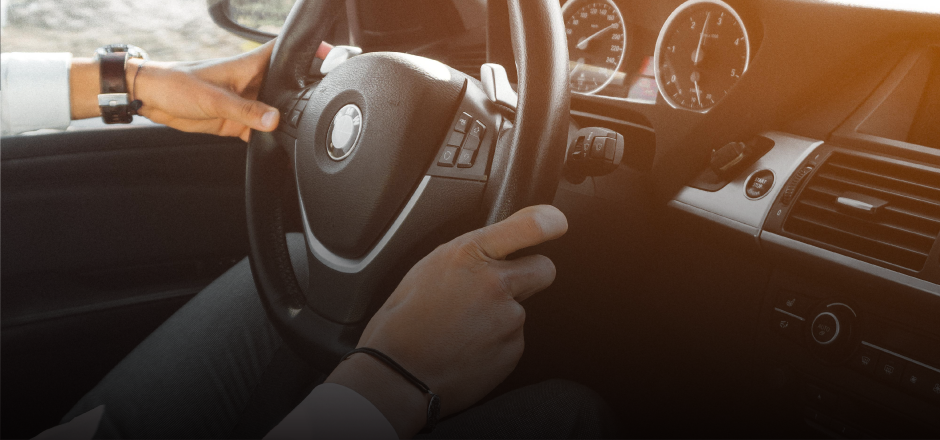Unfortunately, auto technicians are not wizards or elves who will repair your car overnight while you are sound asleep. And overtime, minor issues can cause bigger problems that can be costly. It’s our job to detect and fix them before it’s too late.
To help you with this, we’ve gathered all the major problems you can keep an eye open for and inspect them periodically to keep your car and its engine-health intact.
- Bulging Tires
Tire bulges can form if something hits your tire while you’re driving or when you inflate too much air into it. These are small air bubbles that have forced their way into the sidewalls of the tires through the inner lining. It’s better to get these tires replaced quickly as they can burst unexpectedly. - Lurched Shifting
Weary clutches, low transmission fluid, and worn-out gears can cause rough or jerky shifting. If not repaired quickly it can lead to total transmission failure which can be really expensive. So, it’s better to get it fixed as early as possible. - Squeaky Belts
If you hear a whining or squeaking sound from under the hood, it can be a displaced or worn-down belt. Adjust or get it fixed at once as belts can lead to damage that’s beyond repair. - Smelly Exhaust/Colored Exhaust Smoke
Car fluids leaking on hot surfaces can produce strong and sometimes dangerous smells. Car exhaust usually has a certain smell but leaking fluids produce stinky odors. To avoid any failures or malfunctioning, it’s better to get them fixed. Also, colored smoke coming from the exhaust is a loud warning bell. Blue smoke indicates burning oil, white smoke means a leaked coolant, and black smoke means overused gasoline. - Unsteady Steering Wheel
An unsteady steering wheel can not only mean a disobedient and uncontrollable car, but a failed or unaligned suspension, a dislocated wheel or bearing. Save yourself from an accident due to a turbulent car and get this fixed right away. - Squeaking Brakes
Squeaking brakes can mean damaged brake pads. Under the pad material of a brake pad there’s a metal pad that produces a squeaking sound like a high-pitched screech when it comes in contact with the brake rotor. It’s a clear warning from the brakes themselves that they need a new set of brake pads. - Smoke
Smoke has always been red flag and especially in this case, it’s a big and bright red flag. Smoke can be caused from an overheated engine, electrical issues, seized brake caliper or leaking fluids. As mentioned above, colored smoke also indicates different signs that can be hazardous for you and your car both. So instead of burning your hard-earned money, get your car inspected and repaired. - Engine Light
Ignoring this light can cost you thousands. An engine light gives you a clear-cut warning that something is wrong with the system and it can be anything. It can be a loose gas cap, a faulty catalytic convertor or a transmission issue. Procrastinating when it comes to its maintenance can only lead to double the expenses. - Oil Pressure Light
This light means that there’s an issue with the oil pressure, oil gauge, or oil pump of your vehicle. Consider oil as your vehicle’s blood. Just as humans pay attention to the circulatory system, your car deserves the same attention and care when it come to this specific oil pressure light. - Temperature Gauge
Temperature gauge tells that your car is overheated, which should ideally never happen but cannot be avoided altogether. Whenever it glows, turn off your car immediacy and let it cool for a moment. While your car’s cooling down, do check your coolant fluid level and don’t drive until you are absolutely sure of the situation. - Battery Light
Low battery light indicates that there’s an issue with the battery itself. It can be a faulty alternator or alternator belt that recharges the battery. To recharge your battery, keep the engine running and avoid restarting it as it drains more battery. - Brake Warning Light
A brake warning light represents a malfunctioned brake hydraulic system. An issue with your car’s brake system can be menacing as they can cause brake failures and cost valuable lives. - Low Tire Light
A low tire light means low tire pressure. Underinflated tires can result in tire punctures and ensuring its maintenance must be our priority as tires are a vital component of the car that keep it moving. - Leaking Fluids
When properly maintained, refilled, and changed, fluids help to maintain the condition of your car and extend its life. The most commonly recognized fluid is engine oil, colored light brown to black. Transmission fluid is red colored or brown, power steering fluid is either clear, red or brown, brake fluid is transparent yellow to brown, and coolant is often colored blue, blue-green, orange or pink. Their leakage can lead to faulty mechanisms and breakdowns which can lead to very expensive repairs in future.
It’s always best to get your car diagnosed right away and get rid of all the faults rather than delaying the cause and ending up in a problematic situation. It’s better to keep in mind that a minor issue resolved today can save you from major financial issues tomorrow. Not to mention risking lives isn’t worth a few repairs or a few dollars.

